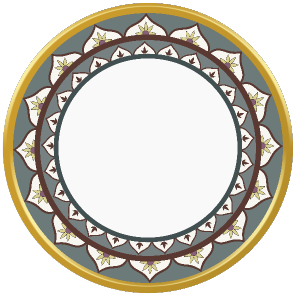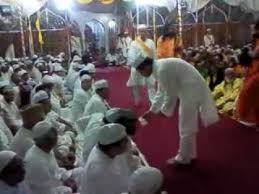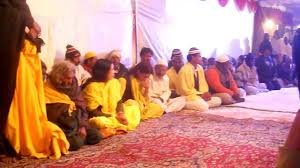

0


0

ART AND CULTURE
By Saswati Borthakur
12 January, 2017

 The city, a glimpse
The city, a glimpse
I am fortunate to live in a city known popularly as the 'City of Nawabs'- Lucknow. But to me, every person here is a Nawab. A Nawab not by the virtue of birth but the virtue of imbibing the very essence of it. I moved to the city after my marriage and boy! Was I impressed?
Ruled in turns by the Delhi Sultanate, Mughals, Nawabs of Awadh and later the British Empire, it is a confluence of multicultural heritage. This city is known for its Tehzeeb(refinement and sophistication) and Tameez(etiquette). The language is a beautiful mix of Awadhi, Hindi, and Urdu.The joke around here is that if you find two people arguing on the road, to a bystander it seems as if two friends are talking about something. Even the abuses are hurled with a generous sprinkling of '
The language is a beautiful mix of Awadhi, Hindi, and Urdu.The joke around here is that if you find two people arguing on the road, to a bystander it seems as if two friends are talking about something. Even the abuses are hurled with a generous sprinkling of 'aap'. The Nawabs of Awadh are credited with having the most influence on the city's culture and heritage. They were secular and encouraged arts, music, dance and architecture among many other things. They upheld communal harmony among the Muslims and the Hindus.
 Pic courtesy: www.tourism-of-india.com
Pic courtesy: www.tourism-of-india.com
Thus, there are innumerable examples in and around Lucknow, where we can witness a seamless respect and harmony between the two communities. We will explore this aspect in subsequent articles too. One of the shining examples of such secularism can be found in Dewa Sharif, not very far from Lucknow.
 Pic courtesy: UP Tourism
Pic courtesy: UP Tourism
Dewa Sharif is about 45kms from Lucknow, in the district of Barabanki, an hour by road. It is famous for the dargah of Haji Waris Ali Shah, who was a Sufi saint. This dargah boasts of followers from both Hindu and Muslim communities and also from all over the world. Legend has it that the foundation of this dargah was laid down by a Hindu man named Kanhaiyya Lal.
 Pic courtesy: www.aulia-e-hind.com
Pic courtesy: www.aulia-e-hind.com

Waris Ali Shah, who, since his childhood had shown an inclination towards spirituality. Initially, he was attached to the Chistiyya school of thought, which was a traditional branch of Sufism. However, later on, he became very liberal. He didn't want his followers to leave their faith. The Sufi saint was proficient in his knowledge of the Quran and was vastly traveled. Upon his return from his travels, he spread the message of love and peace.


 Pic courtesy: www.warispak.com
Pic courtesy: www.warispak.com
Haji Waris Ali Shah organized an Urs(death anniversary) of his father, which happened to fall in the month of 'Kartik', according to the Hindu calendar. The Dewa Mela marks this celebration where chadars are offered at the tombs of the saint and his father. People from all communities, far and wide attend this fair.
A cattle market is organized during this time. The market is so big that it has to be divided into different portions to accommodate various types of animals.

Many cultural programs such as Mushaira, Kavi Sammelan, Musical Nights are also organized. Qawwals sing beautiful qawwalis at the shrine of the saint, which make the atmosphere full of divinity and spirituality.
 Pic courtesy: cutting loose
Pic courtesy: cutting loose

A brilliant fireworks show is also organized which is very popular among the people.
Local handicrafts are also on display.
Langar is served to the devotees.

Truly, such celebrations repose our faith in the inherent goodness of religions. Lucknow is witness to many such occasions and events where people set aside the differences in their religions and come together for a greater good. I have much more such stories to share. Keep Listening!